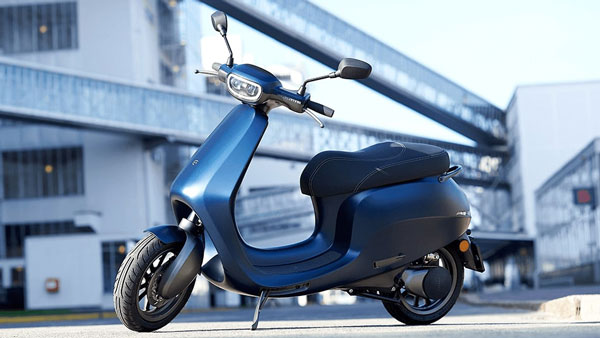India’s electric two-wheeler penetration is expected to reach 25-35% and e-three-wheeler penetration is expected to reach 65-75% by 2030, even as OEMs and central and state governments need to work together for an integrated strategy and build a conducive environment for the country’s adoption of EVs, a study stated on Tuesday. According to KPMG report (prepared in conjunction with CII) on ‘Shifting Gears, the evolving electric vehicle landscapes in India’, only a few state EV policies currently have battery recycling guidelines and incentives.
KPMG expects 2W penetration of 25-35% in India and 65-75% in 3Ws by 2030. The electrification of passenger vehicles (PV) is expected to follow, with 10-15% penetration in the personal segment and 20-30% in the commercial segment by 2030.
However, by 2030, about 10-12% of the total bus market is projected to be electrified, it added.
EVs are on track for the car industry to meet their pledge as a game-changer. The adoption curve led by e-buses and passenger taxis is expected to lead the two-wheeler (2W) and three-wheeler (3W) automotive segments,’ said Mr. Rohan Rao, KPMG’s Industrials and Automotive Partner in India.
According to him, a range of factors are paving the way for a new age of EV adoption, including the availability of charging infrastructure, a robust financing ecosystem, decreased battery prices and increased consumer awareness.
The state is also promoting EV policies to overcome some of the obstacles to adoption, he said, adding that EVs are emerging as a disruptive force, with many players experimenting with new creative business models and use cases and discovering them.
As the operating cost of EVs is much lower than the cost of IC engine vehicles (one tenth for 2W and 3W), a strong argument for a change in the B2B segment to EVs emerges, he said.
Mr. Rao said a large network of charging stations is essential for ensuring the rapid adoption of EVs, stating that the development of the ecosystem is the key.
The local ecosystem of components needs to be created. Under FAME-II, the government has initiated a Phased Manufacturing Policy in which it pushes for the indigenisation of parts.
Overall, in India’s EV history, there appears to be great potential, as all of the above factors come together to drive long-term growth, Mr. Rao said.
Innovative business models such as battery swapping have evolved and will become popular to allow for widespread EV adoption, according to the study.
The government is strongly promoting manufacturing localization to achieve the twin objectives of self-reliance and job development, in line with Make-in – India initiatives and global supply chain realignments.
The government has also announced plans to set up production plants for batteries in India, he said.
Overall, in India’s EV history, there appears to be great potential, as all of the above factors come together to drive long-term growth, Mr. Rao said.
Innovative business models such as battery swapping have emerged and will become popular to allow for widespread EV adoption, according to the study.
The government is strongly pushing the localization of output to achieve the twin goals of self-reliance and job creation in line with Make-in – India initiatives and global supply chain realignments, the report stated while highlighting a coherent recycling strategy.
Indicating that the state EV policies should concentrate more on demand incentives that minimise the initial cost gap, the report said they should have certain objectives for the conversion of EVs for a particular industry/use case.
Recommending the establishment of adequate charging infrastructure is necessary to encourage users to consider EVs, the report said that EVs could be encouraged by encouraging users to buy / use EVs over ICE vehicles with steps such as increasing road tax / registration fees on ICE vehicles, levying cess on petrol / diesel sales or parking surcharge, providing scrapping and deregistration incentives
It is expected that the vehicle scrappage policy would spur the adoption of EVs, it said.
As more EVs join the market, consistent policies on sustainable end-of – life and disposal practises for the EV industry need to be formulated, the report said the addition of corporate average fuel efficiency (CAFE) standards to require car manufacturers to have a certain share of their vehicle sales as electric vehicles.
Mr. Jeffry Jacob, Partner, Management Consulting-Industrials and Automotive, KPMG in India, said, “EVs are definitely the path forward for sustainable mobility and are gaining momentum around the world more and more. The fee is powered by the 2W and 3W segments in India, followed by public transport and non-public passenger fleets. Our limited EV ecosystem is one of the biggest challenges India currently faces”.
Addressing that a substantial number of essential components are still mostly imported and the charging infrastructure is largely insufficient, he said, “the industry and government are working proactively to overcome these constraints and are taking measures in the right direction.”
“With the right emphasis, all stakeholders’ collective approach and a realistic strategy, we can help accelerate clean mobility and also be at the forefront of the move to a fossil-free future,” Mr. Jacob added.
Source:IBEF
You may also like
-
Trade Connect E-platform For Exports Is Single Window, Fast, Accessible And Transformational: Shri Piyush Goyal
-
Dot Simplifies Approval Processes For Telecom Licenses And Wireless Equipment
-
Coal Production and Supply Trends on Positive Trajectory
-
Union Minister To Release Booklets On Promotion Of Indigenous Species & Conservation Of States Fishes
-
2nd India-Japan Finance Dialogue held in Tokyo on 6th September, 2024
